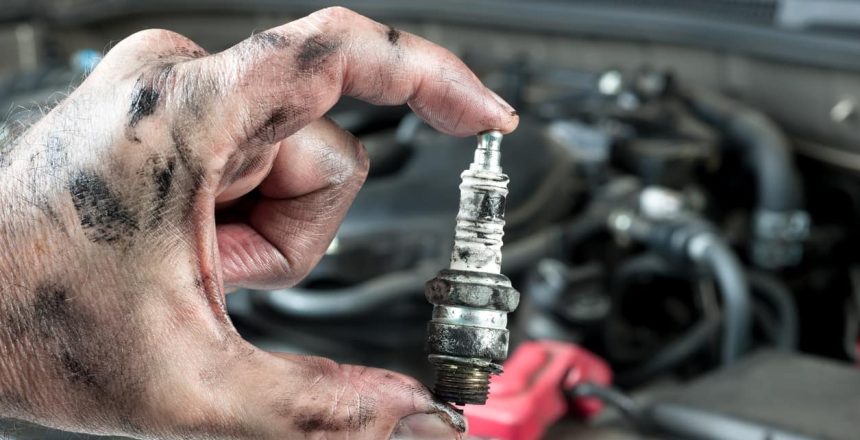The term tune-up describes various maintenance jobs meant to extend your car’s life and maximize its performance. Here’s what they include.
Performing regular maintenance on your vehicle is essential because it makes it more likely you’ll receive full value from your investment. That should be the goal for any car owner since you want your automobile to remain safe, reliable, and ready to drive.
The word tune-up has evolved from its original meaning, as this work historically meant maintenance to the ignition system. Today, though, tune-up is an all-encompassing term covering any routine maintenance work your vehicle requires to stay functional.
When you take your vehicle to a garage and ask for a car tune-up, the mechanic will inspect multiple aspects of your car. They’ll ensure that its core components are in good shape and repair anything that requires attention. Much of this work is simple enough to handle at home, too.
Here’s a look at some work your mechanic might include when giving your car a tune-up.
Key Takeaways
- A tune-up once referred to work on the ignition system
- It’s now a broad term covering most vehicle maintenance
- Your tune-up could include repairs to multiple car components
- Getting a tune-up before shipping your car is advisable
Service the ignition system
A car tune-up still incorporates inspecting and repairing the ignition system, even though today’s vehicles experience fewer problems with these components than past generations. The ignition system in your car includes ignition coils, plug wires, spark plugs, and various electrical components, some of which might require attention.
Ignition coils are responsible for converting energy from your battery into a reaction that starts your engine. The high voltage of electricity present can wear the coils out over time, so they’ll eventually need replacing.
The energy from the ignition coil then transfers through the distributor and rotor. Checking your distributor cap is a fundamental part of any tune-up because that’s where many problems arise.
From there, you’ll want to check your plug wires, which tend to break down. These wires connect the distributor with your spark plugs, which create the final reaction your engine needs to start.
Suppose your engine is misfiring, or you notice a rough idle or performance loss when accelerating. In that case, there’s a good chance there’s an issue with your ignition system that a car tune-up might solve.
Replace the filters
Another job that’s important is changing the filters of your fuel tank and oil and cleaning the air that makes everything function.
First, you might check your engine air filter. This is because the filter is responsible for cleaning the air that creates combustion within your engine. You’ll notice you aren’t receiving the same fuel efficiency when it’s time for a new engine air filter.
Next, your tune-up might include changing your oil filter, a device that removes contaminants from your engine oil that could cause premature wear to internal components. Then it might include your fuel filter, which removes debris from your gasoline. Both of these filters require changing at regular intervals. Therefore, your mechanic is sure to check them when giving your car a tune-up.
Finally, it’s important to check the cabin air filter, which cleans the air you breathe when driving the car. Changing this filter won’t alter how the vehicle performs. However, it prevents you from inhaling dust, exhaust fumes, and pollen throughout your travels.
Many oil change garages will check all your filters as part of your regular service, as well.
Check your hoses and belts
A series of pulleys and belts are responsible for propelling your vehicle forward and keeping everything operative, so your tune-up should look at these devices to ensure they’re in good shape.
The serpentine belt is one of the main components that can run into problems and hinder your vehicle. This belt wraps around various pulleys and ensures your alternator charges the battery as the car runs. Your tune-up should also inspect the serpentine belt for cracks or fraying that could cause it to break in the future.
Your timing belt is another essential piece that controls how many internal components in your vehicle operate. This belt requires replacement every 90,000 miles or so and inspecting it at regular intervals is recommended. A broken timing belt can be catastrophic because it has the potential to damage your piston valves.
Other items you’ll want to check as part of your car tune-up include the radiator and heater hoses, which keep your engine cool, and your belt tensioner, which ensures the belts are at the correct tension and keeps numerous components working.
Inspecting your belts and hoses is part of your regular car maintenance, but most of these components will only require occasional replacement.
Change the fluids
Your car contains all kinds of fluids and keeping them at optimal levels is essential for prolonging the vehicle’s life.
For example, you’ll want to change your engine oil every 5,000 to 7,000 miles and ensure it never drops to dangerous levels. Other essential fluids include coolant, brake fluid, power steering fluid, and automatic transmission fluid. All of these are responsible for keeping specific components lubricated and functional.
A car tune-up might involve topping these fluids up, but it’s worth noting that you’ll have to drain and replace these lubricants every so often because they tend to get dirty as you use the vehicle.
Get a car tune-up before your auto transport
If you’re planning to ship a vehicle elsewhere in the country, going ahead with a car tune-up beforehand is a good idea. This tune-up will ensure your vehicle is in working order when it arrives at your destination, limiting the problems you could experience. Topping your fluids up and confirming your ignition, filters, hoses, and belts are in solid condition can ease some of your stress as you attempt to drive from the shipping terminal.
When the time comes to find a car shipping carrier, Mercury Auto Transport can help. We’ll put you in touch with FMCSA licensed and insured vendors who will guarantee your price and provide additional peace of mind. Contact Mercury Auto Transport today to learn more and receive your free quote.






